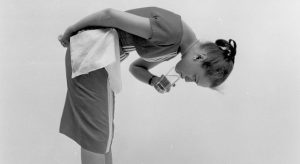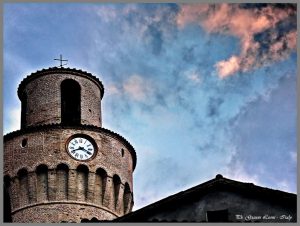As a tourist you are perpetually dependent on the competence and the kindness of strangers—the drivers, the restaurant and hotel staff, your fellow passengers—all become part of a public puddle of general cooperation.
Usually, if your attitude is correct, and your luck holds, you swim about in a pond of congenial getting-by. Tips play a big part in this. In New York my sister taught me the fine art of pre-tipping the house-keeping staff, for example. And writing bad reviews on an appropriate website also used to be an incentive for a reasonable standard of goods and service.
When the kindness puddle gets too polluted, though, it’s important to get to dry land as soon as possible. Everyone knows you can drown in an inch of muddy water.
Take the recent case of the Wild Boar Goulash Soup.
In one of Budapest’s best restaurants this local speciality featured as a course between the warm goose liver and the meat and dumplings. It was not even your ordinary goulash soup, but a special variety made with wild boar. (Query: is there such a thing as domestic boar?)
 Anyway, it consisted of tinned cubed vegetables and meat. I know this as a true fact, as I grew up eating tinned soup and loved it. Like a gourmet who can separate a single pearl of Beluga Caviar from a crystal bowl full of lesser eggs, I can distinguish a rubbery cube of tinned beef from any carefully-boiled home-made product. And tinned vegetables have their own texture that simply cannot be reproduced no matter how long you boil a carrot.
Anyway, it consisted of tinned cubed vegetables and meat. I know this as a true fact, as I grew up eating tinned soup and loved it. Like a gourmet who can separate a single pearl of Beluga Caviar from a crystal bowl full of lesser eggs, I can distinguish a rubbery cube of tinned beef from any carefully-boiled home-made product. And tinned vegetables have their own texture that simply cannot be reproduced no matter how long you boil a carrot.
By my reckoning, a spoonful of canned meat and veg had been ladled into each bowl, a spoonful of paprika had been added, and it was all topped up with hot water. I wolfed down as much as I could of the solid bits before stopping to reflect, and then left the rest. My more fastidious dining-companion left all of his.
The waiter refused to take our almost-full bowls away, and a rather large lady came to enquire what our problem was. She was not exactly confrontational, but the musician playing the zither definitely stepped on the damper pedal so he could follow the interesting conversation that was about to take place.
It was not to our taste perhaps? We were not used to the paprika? Ah, but, exceptionally, her husband-the-chef had not made the delicious soup today and a sous-chef had made it. She would check with the kitchen ….
She never returned to our table. Much like the Lobster Newburg in Aswan (no lobster and the shells smelled of bleach) or the fennel soup in Istanbul (fennel had been replaced by chopped grass) yet another tourist restaurant had cut the final corner.
When this happens, it is our duty to gird up our tourist loins and send the simple, yet brave, message to the kitchen to tell the chef that it’s not good.
The puddle of cooperation (and the soup) might be better tomorrow.
PS We left a big tip for the zither man.


